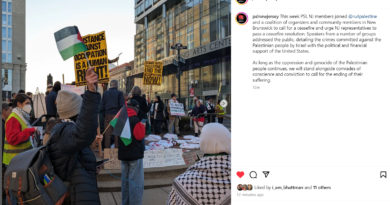Defending Academic Freedom at Rutgers in 2024
Above linked statement is the Rutgers AAUP response to the multi-pronged attack on the free speech rights of faculty and students at Rutgers. The following is the full text:
April 9, 2024
A statement of the Rutgers AAUP-AFT Executive Council and Academic Freedom Committee and the Rutgers Adjunct Faculty Union Executive Board and Academic Freedom Committee
Since late 2023, Rutgers University has been the target of repeated attacks on academic freedom, including pressure from elected officials to limit the speech and activities of professors, students, academic centers, and departments at Rutgers. These attacks claim to be focused on antisemitism, but in fact they aim at a broad sweep of expression, seeking to stifle the free exchange of ideas that is at the core of Rutgers’ educational mission as the premier public university of New Jersey. To protect Rutgers’ academic mission, we speak out against attempts to infringe on free speech, research, teaching, and writing. We call on the Rutgers administration to do likewise and robustly defend our institution and targeted members of the Rutgers community.
We support academic freedom for all members of the Rutgers community, regardless of political viewpoint. We note the following features of academic freedom in response to recent attacks:
- Political Criticism. Academic freedom and freedom of speech include the right to criticize nation-states and political movements. There are no exceptions. Criticizing a nation or nationalist movement is not ethnic hatred, and attempts to say otherwise are, most often, bad-faith maneuvers to evade legitimate scrutiny of political positions. Such fraudulent conflation further underscores the need for critical thought that we encourage at Rutgers University.
- Uncomfortable Speech. Feeling discomfort is not a reason to shut down speech. Exposing people to different ideas—even challenging their most deeply held beliefs—is a feature, not a flaw, of academic life. Students and professors are at our best—and best able to contribute to American society—when we are exposed to a wide range of challenging ideas.
- Climate of Fear. The recent attacks on academic freedom at Rutgers have created a culture of fear designed to silence faculty, staff, administrators, and students. Most often, this coercive climate of fear is the most oppressive for the most vulnerable members of the Rutgers community, and many of the attacks have targeted minoritized ethnic, religious, and gender groups. We identify these attacks as part of a larger assault on higher education that seeks to devalue intellectual inquiry and promote censorship.
Rutgers has existed for more than two centuries, and we will weather this most recent storm that threatens to derail our educational endeavors. Moreover, we intend to come out stronger than before with our dual bedrock principles—academic freedom and freedom of speech—renewed precisely by defending and using them to resist those who demean higher education.









